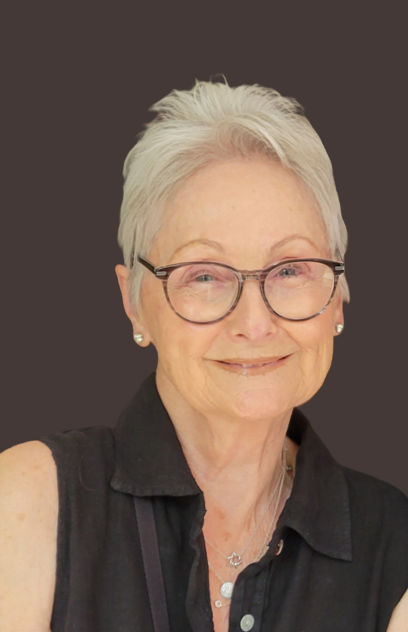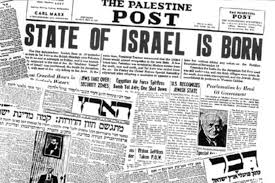Features
Is There Enough Time Before Summer to Get a Summer Body?

Do you think there’s enough time to get a summer body before the height of summer? Of course! If you start right now, you still have two months before August, which we’d class as the height of summer. Two months is enough time to make good progress and see some changes that’d make you look and feel incredible.
Read on to find out more.
Lean Diet and Lifting Weights
It’s the part that nobody likes to think about – the hard work. Yes, if you want to get a summer body before summer, you must be ultra-strict with your lean diet and lifting weights, with a sprinkle of cardio. Combining a lean diet with weight training forms the basis for your summer body.
If you’re ultra-strict with your diet and training four or five times a week, there’s a massive difference you can make, especially if you get your training plan spot on. You can also speed up the process with supplements – supplements will be your best friend! Check out Canadian Made Labs (canadianmadelabs.com) for example, to find the best supplement for you.
Stick to eating whole, unprocessed foods like lean meats, vegetables, fruits, and whole grains. Reducing refined sugars and unhealthy fats will help you lose fat and build muscle. Swap your sweet snack for 0% low-fat Greek yogurt, granola, honey, and mixed fruits, and you’ve already made a massive difference to your diet and outcomes. And it tastes good!
Weight training is equally essential for muscle development, metabolism, and how quickly your physique changes. Focus on compound exercises that target multiple muscles for maximum results.
Hybrid Training
Hybrid training works well. If you’ve got some fat to trim, cardio is essential. Don’t worry, you don’t need to run. A moderate-paced walk on a steeper incline can burn more calories than running, is more enjoyable for most people, and won’t leave you gasping for breath. The stair master is another good cardio machine for a quick blast that will leave you gasping for breath but feeling good.
If you really want to make quick changes, do high-intensity interval training (HIIT). HIIT workouts consist of short bursts of high-intensity exercise followed by brief periods of low-intensity exercise or rest.
This form of workout can help you lose body fat within a short period compared to steady-state cardio exercise, for example – a 20-minute session doing these intervals may benefit you more than one hour of slow walking. Apparently, you can burn 40% more body fat with HIIT. And what’s 20 minutes of sweating and suffering if you want quick gains?
Psychological Resilience and Self-Control
It doesn’t only involve physical fitness; mental strength and willpower also play a huge role in achieving a perfect summer body. Discipline and a positive mindset are necessary for maintaining focus on one’s goals. Set achievable targets, and understand that progress takes time. If you’re ever lacking motivation, pick the body you want and imagine it in your mind. Tell yourself, over and over, that you need that body. In times of low motivation, reminding yourself repetitively of the body you want can make a big difference.
Consistency in the eating plan and daily training will encourage habits that can become part of you. And, don’t only measure your progress through weight or inches alone but also how good you feel physically and mentally.
It’s time to think about your summer body…because you’re running out of time. Start today and see what difference you can make by August!
Features
Susan Silverman: diversification personified

By GERRY POSNER I recently had the good fortune to meet, by accident, a woman I knew from my past, that is my ancient past. Her name is Susan Silverman. Reconnecting with her was a real treat. The treat became even better when I was able to learn about her life story.
From the south end of Winnipeg beginning on Ash Street and later to 616 Waverley Street – I can still picture the house in my mind – and then onward and upwards, Susan has had quite a life. The middle daughter (sisters Adrienne and Jo-Anne) of Bernie Silverman and Celia (Goldstein), Susan was a student at River Heights, Montrose and then Kelvin High School. She had the good fortune to be exposed to music early in her life as her father was (aside from being a well known businessman) – an accomplished jazz pianist. He often hosted jam sessions with talented Black musicians. As well, Susan could relate to the visual arts as her mother became a sculptor and later, a painter.
When Susan was seven, she (and a class of 20 others), did three grades in two years. The result was that that she entered the University of Manitoba at the tender age of 16 – something that could not happen today. What she gained the most, as she looks back on those years, were the connections she made and friendships formed, many of which survive and thrive to this day. She was a part of the era of fraternity formals, guys in tuxedos and gals in fancy “ cocktail dresses,” adorned with bouffant hair-dos and wrist corsages.
Upon graduation, Susan’s wanderlust took her to London, England. That move ignited in her a love of travel – which remains to this day. But that first foray into international travel lasted a short time and soon she was back in Winnipeg working for the Children’s Aid Society. That job allowed her to save some money and soon she was off to Montreal. It was there, along with her roommate, the former Diane Unrode, that she enjoyed a busy social life and a place for her to take up skiing. She had the good fortune of landing a significant job as an executive with an international chemical company that allowed her to travel the world as in Japan, Hong Kong, New Zealand, Australia, Mexico, the Netherlands and even the USA. Not a bad gig.
In 1983, her company relocated to Toronto. She ended up working for companies in the forest products industry as well the construction technology industry. After a long stint in the corporate world, Susan began her own company called “The Resourceful Group,” providing human resource and management consulting services to smaller enterprises. Along the way, she served on a variety of boards of directors for both profit and non-profit sectors.
Even with all that, Susan was really just beginning. Upon her retirement in 2006, she began a life of volunteering. That role included many areas, from mentoring new Canadians in English conversation through JIAS (Jewish Immigrant Aid Services) to visiting patients at a Toronto rehabilitation hospital, to conducting minyan and shiva services. Few people volunteer in such diverse ways. She is even a frequent contributor to the National Post Letters section, usually with respect to the defence of Israel
and Jewish causes.
The stars aligned on New Year’s Eve, 1986, when she met her soon to be husband, Murray Leiter, an ex- Montrealer. Now married for 36 plus years, they have been blessed with a love of travel and adventure. In the early 1990s they moved to Oakville and joined the Temple Shaarei Beth -El Congregation. They soon were involved in synagogue life, making life long friends there. Susan and Murray joined the choir, then Susan took the next step and became a Bat Mitzvah. Too bad there is no recording of that moment. Later, when they returned to Toronto, they joined Temple Emanu-el and soon sang in that choir as well.
What has inspired both Susan and Murray to this day is the concept of Tikkun Olam. Serving as faith visitors at North York General Hospital and St. John’s Rehab respectively is just one of the many volunteer activities that has enriched both of their lives and indeed the lives of the people they have assisted and continue to assist.
Another integral aspect of Susan’s life has been her annual returns to Winnipeg. She makes certain to visit her parents, grandparents, and other family members at the Shaarey Zedek Cemetery. She also gets to spend time with her cousins, Hilllaine and Richard Kroft and friends, Michie end Billy Silverberg, Roz and Mickey Rosenberg, as well as her former brother-in-law Hy Dashevsky and his wife Esther. She says about her time with her friends: “how lucky we are to experience the extraordinary Winnipeg hospitality.”
Her Winnipeg time always includes requisite stops at the Pancake House, Tre Visi Cafe and Assiniboine Park. Even 60 plus years away from the “‘peg,” Susan feels privileged to have grown up in such a vibrant Jewish community. The city will always have a special place in her heart. Moreover, she seems to have made a Winnipegger out of her husband. That would be a new definition of Grow Winnipeg.
Features
Beneath the Prairie Calm: Manitoba’s Growing Vulnerability to Influence Networks

By MARTIN ZEILIG After reading Who’s Behind the Hard Right in Canada? A Reference Guide to Canada’s Disinformation Network — a report published by the Canadian AntiHate Network that maps the organizations, influencers, and funding pipelines driving coordinated right wing disinformation across the country — I’m left with a blunt conclusion: Canada is losing control of its political story, and Manitoba is far more exposed than we like to admit.
We often imagine ourselves as observers of political upheaval elsewhere — the U.S., Europe, even Alberta.
But the document lays out a sprawling, coordinated ecosystem of think tanks, influencers, strategists, and international organizations that is already shaping political attitudes across the Prairies. Manitoba is not an exception. In many ways, we’re a prime target.
The report describes a pipeline of influence that begins with global organizations like the International Democracy Union and the Atlas Network. These groups are not fringe. They are well funded, deeply connected, and explicitly designed to shape political outcomes across borders. Their Canadian partners translate global ideological projects into local messaging, policy proposals, and campaign strategies.
But the most concerning part isn’t the international influence — it’s the domestic machinery built to amplify it.
The Canada Strong and Free Network acts as a central hub linking donors, strategists, and political operatives. Around it sits a constellation of digital media outlets and influencer accounts that specialize in outrage driven content. They take think tank talking points, strip out nuance, and convert them into viral narratives designed to provoke anger rather than understanding.
CAHN’s analysis reinforces this point. The report describes Canada’s far right ecosystem as “coordinated and emboldened,” with actors who deliberately craft emotionally charged narratives meant to overwhelm rather than inform. They operate what the report characterizes as an “outrage feedback loop,” where sensational claims spread faster than journalists or researchers can contextualize them. The goal is not persuasion through evidence, but domination through repetition.
This is not healthy democratic debate.
It is a parallel information system engineered to overwhelm journalism, distort public perception, and create the illusion of widespread grassroots demand. And because these groups operate outside formal political structures, they face far fewer transparency requirements. Manitobans have no clear way of knowing who funds them, who directs them, or what their longterm objectives are.
If this feels abstract, look closer to home.
Manitoba has become fertile ground for these networks. Our province has a long history of political moderation, but also deep economic anxieties — especially in rural communities, resource dependent regions, and areas hit hard by demographic change. These are precisely the conditions that make disinformation ecosystems effective.
When people feel unheard, the loudest voices win.
We saw hints of this during the pandemic, when convoy aligned groups found strong support in parts of Manitoba. We see it now in the rise of local influencers who echo national talking points almost in real time. And we see it in the growing hostility toward institutions — from public health to the CBC — that once formed the backbone of civic trust in this province.
CAHN’s research also shows how quickly these networks can grow. Some nationalist groups have seen membership spikes of more than 60 percent in short periods, driven by targeted digital campaigns that exploit economic uncertainty and cultural anxiety. These surges are not organic. They are engineered.
The document also highlights the rise of explicitly exclusionary nationalist groups promoting ideas like “remigration,” a euphemism for mass deportation of nonEuropean immigrants. These groups remain small, but Manitoba’s demographic reality — a province where immigration is essential to economic survival — makes their presence especially dangerous. When extremist ideas begin to circulate within mainstream political networks, they gain a legitimacy they have not earned.
Even more troubling is how these ideas migrate.
CAHN warns that concepts once confined to fringe spaces are now being repackaged in sanitized language and pushed through influencers, think tanks, and political operatives seeking legitimacy. When these narratives appear alongside conventional policy debates, they gain a veneer of normalcy that obscures their origins.
None of this means Manitoba is on the brink of political collapse.
Our institutions remain resilient, and our political culture is still fundamentally moderate. But sovereignty is not just about borders or military power. It is also about information — who controls it, who manipulates it, and who benefits from its distortion. When opaque networks shape public opinion through coordinated disinformation, that sovereignty erodes.
CAHN’s broader warning is that trust itself is under attack. Farright networks intentionally target public institutions — media, universities, public health agencies, cultural organizations — because weakening trust creates a vacuum they can fill with their own narratives. A democracy becomes vulnerable when people no longer share a common set of facts.
The danger is not that Manitoba will suddenly adopt the politics of another country. The danger is that we will drift into a political environment shaped by forces we don’t see, don’t understand, and cannot hold accountable. A democracy cannot function if its information ecosystem is captured by actors who thrive on outrage, opacity, and division.
The solution is not censorship. It is transparency. It is rebuilding trust in journalism. It is demanding higher standards from the organizations that shape our political discourse. Manitobans deserve to know who is influencing their democracy and why.
We are not immune.
And believing we are immune is the most dangerous illusion of all.
Features
Israel Has Always Been Treated Differently

By HENRY SREBRNIK We think of the period between 1948 and 1967 as one where Israel was largely accepted by the international community and world opinion, in large part due to revulsion over the Nazi Holocaust. Whereas the Arabs in the former British Mandate of Palestine were, we are told, largely forgotten.
But that’s actually not true. Israel declared its independence on May 14,1948 and fought for its survival in a war lasting almost a year into 1949. A consequence was the expulsion and/or flight of most of the Arab population. In the immediate aftermath of the Second World War, millions of other people across the world were also driven from their homes, and boundaries were redrawn in Europe and Asia that benefited the victorious states, to the detriment of the defeated countries. That is indeed forgotten.
Israel was not admitted to the United Nations until May 11, 1949. Admission was contingent on Israel accepting and fulfilling the obligations of the UN Charter, including elements from previous resolutions like the November 29, 1947 General Assembly Resolution 181, the Partition Plan to create Arab and Jewish states in Palestine. This became a dead letter after Israel’s War of Independence. The victorious Jewish state gained more territory, while an Arab state never emerged. Those parts of Palestine that remained outside Israel ended up with Egypt (Gaza) and Jordan (the Old City of Jerusalem and the West Bank). They were occupied by Israel in 1967, after another defensive war against Arab states.
And even at that, we should recall, UN support for the 1947 partition plan came from a body at that time dominated by Western Europe and Latin American states, along with a Communist bloc temporarily in favour of a Jewish entity, at a time when colonial powers were in charge of much of Asia and Africa. Today, such a plan would have had zero chance of adoption.
After all, on November 10, 1975, the General Assembly, by a vote of 72 in favour, 35 against, with 32 abstentions, passed Resolution 3379, which declared Zionism “a form of racism.” Resolution 3379 officially condemned the national ideology of the Jewish state. Though it was rescinded on December 16, 1991, most of the governments and populations in these countries continue to support that view.
As for the Palestinian Arabs, were they forgotten before 1967? Not at all. The United Nations General Assembly adopted resolution 194 on December 11, 1948, stating that “refugees wishing to return to their homes and live at peace with their neighbours should be permitted to do so at the earliest practicable date, and that compensation should be paid for the property of those choosing not to return and for loss of or damage to property which, under principles of international law or equity, should be made good by the Governments or authorities responsible.” This is the so-called right of return demanded by Israel’s enemies.
As well, the United Nations Relief and Works Agency for Palestine Refugees in the Near East (UNRWA) was established Dec. 8, 1949. UNRWA’s mandate encompasses Palestinians who fled or were expelled during the 1948 war and subsequent conflicts, as well as their descendants, including legally adopted children. More than 5.6 million Palestinians are registered with UNRWA as refugees. It is the only UN agency dealing with a specific group of refugees. The millions of all other displaced peoples from all other wars come under the auspices of the UN High Commissioner for Refugees (UNHCR). Yet UNRWA has more staff than the UNHRC.
But the difference goes beyond the anomaly of two structures and two bureaucracies. In fact, they have two strikingly different mandates. UNHCR seeks to resettle refugees; UNRWA does not. When, in 1951, John Blanford, UNRWA’s then-director, proposed resettling up to 250,000 refugees in nearby Arab countries, those countries reacted with rage and refused, leading to his departure. The message got through. No UN official since has pushed for resettlement.
Moreover, the UNRWA and UNHCR definitions of a refugee differ markedly. Whereas the UNHCR services only those who’ve actually fled their homelands, the UNRWA definition covers “the descendants of persons who became refugees in 1948,” without any generational limitations.
Israel is the only country that’s the continuous target of three standing UN bodies established and staffed solely for the purpose of advancing the Palestinian cause and bashing Israel — the Committee on the Exercise of the Inalienable Rights of the Palestinian People; the Special Committee to Investigate Israeli Practices Affecting the Human Rights of the Palestinian People; and the Division for Palestinian Rights in the UN’s Department of Political Affairs.
Israel is also the only state whose capital city, Jerusalem, with which the Jewish people have been umbilically linked for more than 3,000 years, is not recognized by almost all other countries.
So from its very inception until today, Israel has been treated differently than all other states, even those, such as the Democratic Republic of Congo, Somalia, and Sudan, immersed in brutal civil wars from their very inception. Newscasts, when reporting about the West Bank, use the term Occupied Palestinian Territories, though there are countless such areas elsewhere on the globe.
Even though Israel left Gaza in September 2005 and is no longer in occupation of the strip (leading to its takeover by Hamas, as we know), this has been contested by the UN, which though not declaring Gaza “occupied” under the legal definition, has referred to Gaza under the nomenclature of “Occupied Palestinian Territories.” It seems Israel, no matter what it does, can’t win. For much of the world, it is seen as an “outlaw” state.
Henry Srebrnik is a professor of political science at the University of Prince Edward Island.


